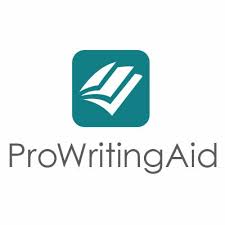TRANSFORMATIVE LEARNING MODEL FOR PARENTING EDUCATION PROGRAM
DOI:
https://doi.org/10.30740/jee.v5i1p13-20Keywords:
Learning Models, Transformative Learning, Parenting EducationAbstract
The purpose of this study is to produce a transformative learning model in parenting education programs organized by early childhood education institutions in changing the terms of reference for children's education to be even better and in synergy with those carried out by educational institutions. This research includes development model research. The results of this study are a transformative learning model in a parenting education program that uses five components, namely (1) syntax; (2) Social System; (3) Reaction Principle; (4) Support System and (5) Instructional Impact and Accompaniment. The steps of Transformative Learning used in the parenting education process consist of 4 steps of field activities, namely: (1) problem development steps; (2) critical reflection development steps; (3) location of determination and implementation of action; and (4) assistance steps taken by educators of early childhood education institutions to early childhood parents in the form of consultations, group discussion activities, and face-to-face activities (class sessions). The success of transformative learning in this parenting education program is that there is a change in the frame of reference of the parents of early childhood which comes from themselves, and the function of educators in this transformative learning process is as a facilitator and counselor in helping towards the change process.
References
Aritonang, R. 1995. Pola Pengasuhan Anak Balita Pekerja Wanita: Kasus pada keluarga Pekerja Wanita Pabrik Rokok Bentoel yang bertempat tinggal di Dukuh Klayatan Kota Malang, Tesis tidak diterbtkan. Malang PPs UM.
Borg & Gall. (1979) Educationl Reserach. New York: Longman Inc.
Campbell, D. & Palm, Glen F. 2004. Group Parent Education. Promoting Parent Learning and Support. United States of America: Sage.
Direktorat Pembinaan Anak Usia Dini. Direktorat Jenderal Pendidikan Anak Usia Dini Non Formal dan Informal Kementerian Pendidikan Nasional. 2011. Pedoman Penyelenggaraan Pendidikan Anak Usia Dini Berbasis Keluarga. Jakarta.
Geldard, K dan Geldard D. 2009. Relationship Counselling for Children, Young People and Families.Los Angeles: Sage.
Harahap, Mefrida.2009.Program Parenting pada Kelompok Bermain Pendidikan Anak Usia dini. Jakarta: Bhuana Ilmu Populer.
Joyce, B., dan Weil, M. (2003). Models of Teaching. New Jersey: Prentice-Hall, Inc.
Lindgren CH. Educational Psychology in the Class room. Modern Asia Edition. New York: John Wiley & Sons INC. 1960)
Lowe, R. 2004. Family Therapy: A Constructive Framework. London: Sage.
Mezirow, J,.dkk. (2003) Learning as Transformatiob: Critical Prespective of a Theory in
Progress. San Fransisco, CA: John Wiley & Sons, Inc.
Moedzakir, M.Djauzi. 2010. Metode Pembelajaran Untuk Program-Program Pendidikan Luar Sekolah. Malang: UM Press.
Setyosari, P. (2013). Metode Penelitian Pendidikan dan Pengembangan. Jakarta: Kencana Prenadamedia Group.
Undang-Undang Sistem Pendidikan Nasional No. 20 Tahun 2003 tentang pendidikan Widianto, Edi. (2013) Transformative Learning pada Pengasuhan Anak Usia Dini di
Lingkungan Keluarga. Tesis tidak diterbitkan. Malang PPs UM.









